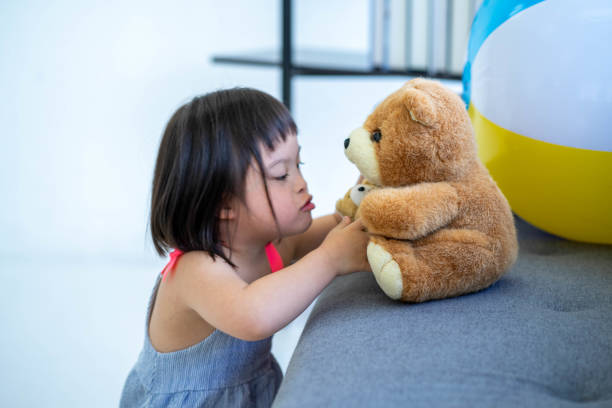Travelling with neurodivergent kids can be both exciting and challenging, especially when they have autism. In this article, we explore tips and strategies to make holiday journeys more manageable for children with autism, ensuring a smoother experience for both parents and the child.
Understanding Autism: A Unique Developmental Journey

Image from iStock
Children with autism, or those classified as neurodivergent, exhibit differences in mental and neurological functions. It’s crucial to recognize that these differences bring both strengths and challenges, making them distinct from their neurotypical counterparts.
Brian Ong’s Experience: Unraveling Challenges Abroad
Brian Ong, whose daughter Caryn was diagnosed with autism pre-pandemic, shares his family’s unexpected challenges during their trip to Bangkok. Caryn’s sensitivity to overwhelming sounds led to unexpected behaviors, highlighting the importance of understanding and preparing for sensory triggers.
The Impact of Travel on Neurodivergent Children
For neurodivergent children, routine and order are vital for maintaining stability and managing social interactions. Dr. Syed Harun Alhabsyi emphasizes that any deviation from their routine, especially during holidays, can lead to distress and potential meltdowns.
Effective Planning: Simulating the Trip
Prioritize effective planning by simulating the trip before embarking on it. Dr. Syed suggests taking a longer-than-usual bus or train ride to gauge the child’s response. This trial helps parents identify potential challenges and tailor travel plans to the child’s needs.
Creating a Comforting Routine


alt="Little Girl Listening to Music with Headphones
on Brown Background Little Girl Listening to Music with Headphones
on Brown Background asian child noise cancelling stock pictures, royalty-free photos & images" width="612" height="408" />
Image from iStock
Neurodivergent children thrive on routine, and disrupting it can cause stress. Dr. Abishek Abraham recommends incorporating elements of their regular routine during travels, such as snack times or comforting items. Planning ahead to minimize disruptions is crucial for a smooth journey.
Researching Assistance Options
Researching airlines and airports that provide assistance for neurodivergent children is essential. Initiatives like the Hidden Disabilities Sunflower scheme in New Zealand and Changi Airport Group’s support for invisible disabilities can significantly improve the travel experience.
Setting Achievable Goals
Setting goals for the child during the journey, as shared by marketing professional Daphne Lee, helps maintain focus and motivation. These goals contribute to providing structure, a key element for neurodivergent children.
Flexibility and Realism: A Balanced Approach
While planning is essential, maintaining flexibility in the travel itinerary is equally crucial. Dr. Syed advises a relaxed approach to sightseeing, avoiding overloading the child with too many activities.
The Importance of Empathy
Recognizing the challenges faced by parents of neurodivergent children is vital for creating a supportive environment. Dr. Abraham encourages bystanders and travel companions to offer empathy and assistance when witnessing a child with ASD struggling during travel.
In conclusion, with thoughtful planning, empathy from others, and a deep understanding of the unique needs of neurodivergent children, holiday journeys can become enriching experiences for both the child and their families.
ALSO READ
How to Spot the Early Signs Of Autism In Toddlers
Empowering Your Child with Autism: Effective Therapies and Support Strategies
Where to Go Next? Singaporean Parents’ Top Travel Destination for 2024
 Together Against RSV
Together Against RSV SG60
SG60 Pregnancy
Pregnancy Parenting
Parenting Child
Child Feeding & Nutrition
Feeding & Nutrition Education
Education Lifestyle
Lifestyle Events
Events Holiday Hub
Holiday Hub Aptamil
Aptamil TAP Recommends
TAP Recommends Shopping
Shopping Press Releases
Press Releases Project Sidekicks
Project Sidekicks Community
Community Advertise With Us
Advertise With Us Contact Us
Contact Us VIP
VIP Rewards
Rewards VIP Parents
VIP Parents
